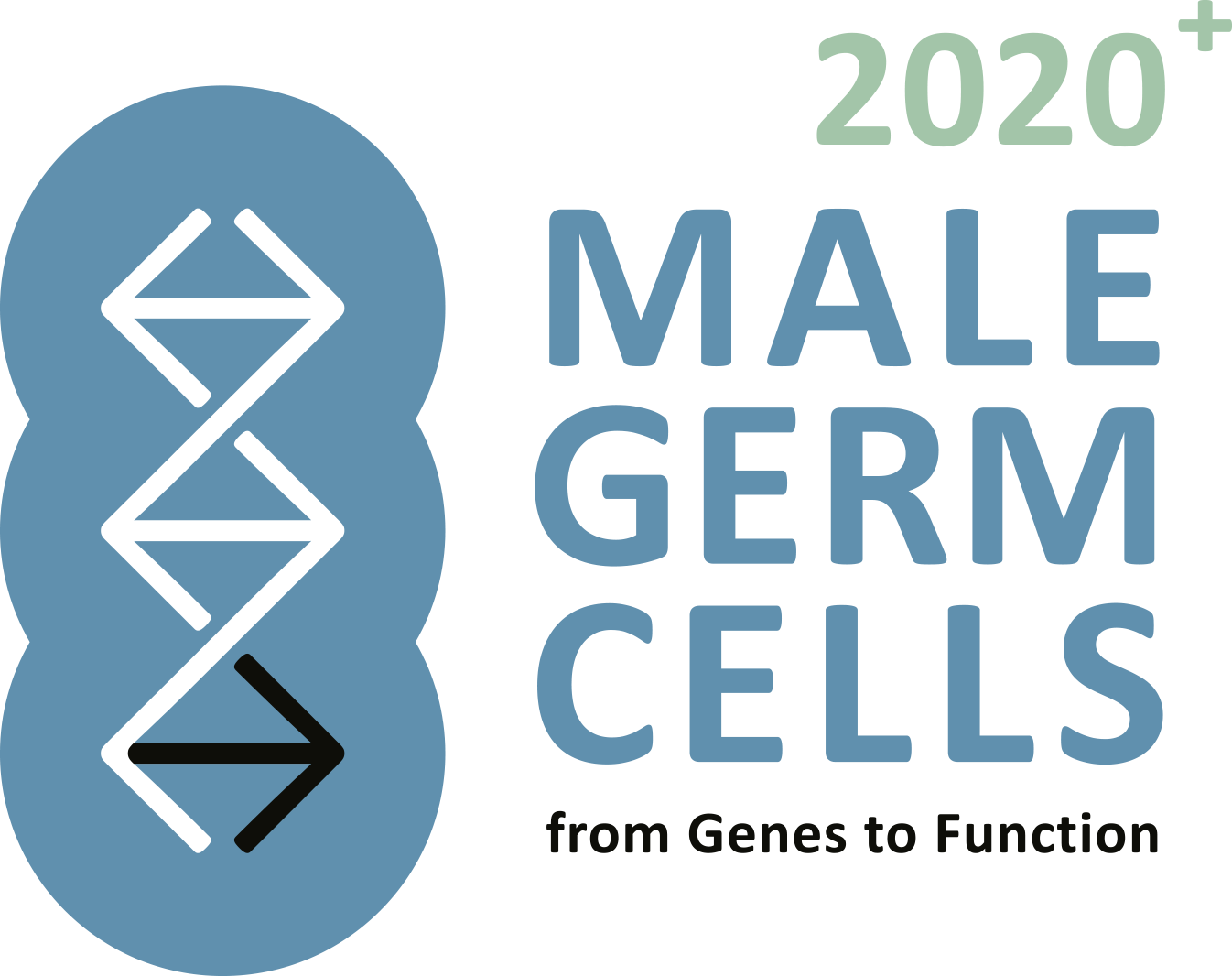Meet the team – The team from A to Z
Isabella Aprea
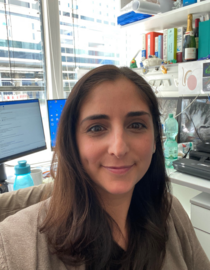
Isabella Aprea is a biologist working at the University Hospital Münster. She is part of Heymut Omran’s team who is PI of CRU project P10 (Male infertility caused by defective sperm flagella beat generation due to ODA defects).
- My dream job as a child: Hair stylist.
- My favourite place/activity in Münster: Going for a walk/ run at the Aasee.
- Working in science is
- Inspiring
- Fun
- Frustrating
- Please describe your field of research in one sentence: Male infertility within the spectrum of motile ciliopathies.
- My greatest scientific success so far: I have published three first author papers and won an award for the best oral presentation at a conference.
- A fun/embarrassing/surprising memory I experienced at a scientific conference: Talking to a scientist about a great publication without remembering the name of the first author, and then realising that I was talking to her. It was embarrassing, but also funny, because the scientist took it with great humour.
- Being part of the CRU is particularly beneficial for me as it gives me the opportunity to work in a great network of scientific groups with excellent expertise in different research areas on male infertility. The exchange of expertise proved to be extremely important for my research and led to several collaborations on interesting projects, including their publication. As a young scientist and mother, I was strongly supported by the CRU. I was able to apply for two successfully approved pilot projects and also applied for a LabAid that supported my work in the laboratory during maternity leave.
Cristin Beumer
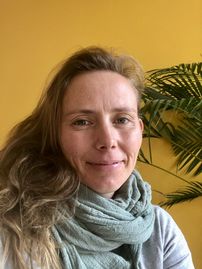
Cristin Beumer is the project manager of the CRU and -very recently- became the manager of the Centre of Medical Genetics. She gained her PhD in biology at the CeRA and specialized afterwards in university management.
- My dream job as a child: Actually, I didn’t see any added value in working when I was a kid. :D But later: policewoman.
- My favourite place/activity in Münster: Go for a walk in the Rieselfelder
- Working in science is
- exciting!
- meaningful
- challenging
- What's your go-to method for staying organised amidst the researchers? A shared agenda and deadlines, deadlines and deadlines.
- What's one skill you've developed that you didn't expect to acquire? Ensuring that others meet deadlines.
- A fun/embarrassing/surprising memory I experienced within the CRU: Getting our CRU renewal application granted is a great memory.
- Being part of the CRU is particularly beneficial for me because it paved my way into university management.
Simone Bier

Simone Bier is an urologist working at the Centre of Reproductive Medicine and Andrology. She is both established in the clinical work as well as in the research work.
- My dream job as a child: Veterinarian
- My favourite place/activity in Münster: Visiting the farmer’s market
- Working in science is
- challenging
- cooperative
- repetitive
- Please describe your field of research in one sentence: Longitudinal changes of hormonal levels, ejaculate parameters and quality of life in healthy men.
- A fun/embarrassing/surprising memory I experienced at a scientific conference: At the annual meeting of the AUA, there was a networking event organized at SeaWord San Diego. It was amazing and very easy to connect to other urologist in such an especially ambience.
- Being part of the CRU is particularly beneficial for me because I am able and allowed to connect to so many different researchers.
Linda Ebbert
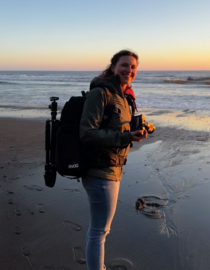
Since 2021, Linda Ebbert has been working as a bioinformatician at the Institute of Medical Informatics and is part of the CRU core project. Mainly working with single-cell RNA data, she participates, for example, in the projects P1 (The role of the Dead end protein in controlling germ cell fate) and P6 (Molecular mechanisms of spermatogenic failure at transcriptional and epigenetic level), analysing human and zebrafish sequencing data.
- My dream job as a child: Astronaut, later marine biologist
- My favourite place/activity in Münster: Dancing salsa and bachata (preferably in summer and outside)
- Working in science is
- varied
- challenging
- fascinating
- Please describe your field of research in one sentence: I process sequencing data making it interpretable in biological contexts.
- My greatest scientific success so far: Introducing my own R/shiny app ‘tRuffle’, a tool for exploring unique differentially expressed genes in scRNA-seq clusters, at the ISMB 2022 in Madison, Wisconsin.
- A fun/embarrassing/surprising memory I experienced at a scientific conference: Meeting many interesting new people at the iRNA cosi pub quiz night in Madison from all over the world.
- Being part of the CRU is particularly beneficial for me because I can use my strengths to work in great teams advancing research on male infertility.
Avinash Gaikwad
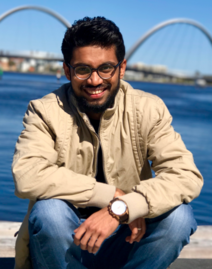
Avinash Gaikwad is a molecular biologist working at the Institute of Reproductive Genetics. He is part of Frank Tüttelmann’s team, who is the PI of CRU project P3 (Genomics of severe spermatogenic failure).
- My dream job as a child: I always (and still) want to be part of Marvel’s Avengers.
- My favourite place/activity in Münster: My favourite place in Münster is the Prinzipalmarkt and I like watching people sail on Aasee in summer.
- Working in science is ‘LIT’:
- Limitless
- Inspiring
- Tantalizing
- Please describe your field of research in one sentence: Investigating genetics of male infertility using flies.
- My greatest scientific success so far: Getting an IMF project grant in the very first year of my post-doc journey.
- My goal(s) as YSC spokesperson: To promote scientific engagement and collaborations amongst PhD student and post-docs in a fun-way.
- A fun/embarrassing/surprising memory I experienced at a scientific conference: What could beat being in a German-choir singing a song about beloved ‘Testis’!
- Being part of the CRU is particularly beneficial for me because it provides me with opportunities to collaborate with leading experts in the field, to first hand witness (and be part of) interdisciplinary research and in-turn hone my skills as a reproductive biologist.
Johanna Klausing
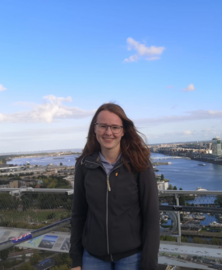
Johanna Klausing studies communication science and work as a student research assistant at the Institute of Reproductive Genetics. She is part of the coordination and management team and mainly responsible for designing graphics and helping to organise CRU and Repro.MS events.
- My dream job as a child: florist
- My favourite place/activity in Münster: Inline skating in the Rieselfelder
- Working in science is
- cooperative
- fascinating
- challenging
- What's your go-to method for staying organised amidst the researchers? Sticky notes!
- What's one skill you've developed that you didn't expect to acquire? I have learnt to have more confidence in myself.
- A fun/embarrassing/surprising memory I experienced within the CRU: Being warmly welcomed into the team
- Being part of the CRU is particularly beneficial for me because it gives me the chance to gain an insight into science communication during my studies.
Sophie Koser
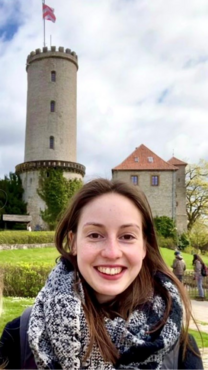
After studying medicine in Münster Sophie Koser started professional training as a human geneticist aiming to become a clinician scientist. Therefore, she approached Frank Tüttelmann and directly became a member of his research group at the Institute of Reproductive Genetics, primarily joining Corinna Friedrich’s group working on meiosis before getting interested in qualitative spermatogenic failure, too.
- My dream job as a child: Human geneticist (really! But I was already at grammer school when I learned something about Mendel and pedigrees. When I was younger, I wanted to be part of the mounted police)
- My favourite place/activity in Münster: I have no specific favourite place but luckily I can enjoy a very nice work route everyday by bike (Kreuzviertel, Schlosstheater, Schulstraße with/without cherry blossom, Promenade & Schloss).
- Working in science is
- not what you are prepared for after studying medicine, but
- an honour, and
- full of surprises
- Please describe your field of research in one sentence: Following up on interesting patients/families with suspected monogenic cause of infertility.
- My greatest scientific success so far: Getting a grant for protected research time during my first year (CareerS Starter programme)
- A fun/embarrassing/surprising memory I experienced at a scientific conference: Already knowing one of the speakers because it was a previous room mate.
- Being part of the CRU is particularly beneficial for me because it is a living example of interdisciplinary work and translational research in medicine.
Juan Manuel Paturlanne
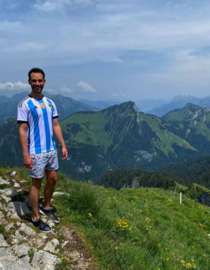
Juan Manuel Paturlanne is a biotechnologist and molecular biologist working at the University Hospital Münster. He is doing his PhD in the working group of Nina Neuhaus and Sandra Laurentino (P6 (Molecular mechanisms of spermatogenic failure at transcriptional and epigenetic level)) and his research topic focuses on understanding the transcriptional changes during primate postnatal testicular development.
- My dream job as a child: Zookeeper
- My favourite place/activity in Münster: meeting friends at the Aasee during summer
- Working in science is:
- Awe-inspiring
- Challenging
- Curiosity
- Please describe your field of research in one sentence: Primate postnatal testicular development with focus in transcriptomics and bioinformatics.
- My greatest scientific success so far: being selected for a 10-minute talk at the European Testis Workshop 2023.
- My goal(s) as YSC spokesperson: to bring people together and create a safe environment for the younger scientists joining the CRU.
- A fun/embarrassing/surprising memory I experienced at a scientific conference: being rewarded with a sangria pitcher for winning the Limbo competition organised by the Spanish team at the ETW 2023
- Being part of the CRU is particularly beneficial for me because I get to learn from great scientists focused on many fields of reproduction, which is my true passion.
Johanna Raidt
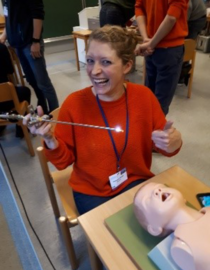
Johanna Raidt is a paediatric pulmonologist and clinical scientist responsible for the special consultation for patients with motile ciliopathies at the department of general paediatrics, UKM. She was born in Münster, where she studied human medicine and sports science. In her free time she likes to do sports and spend time with her family, preferably by the sea.
- My dream job as a child: Adventurer
- My favourite place/activity in Münster: Stroll through the weekly market
- Working in science is
- versatile
- fascinating
- suspenseful
- Please describe your field of research in one sentence: Motile ciliopathies associated with infertility and other manifestations (e.g. lung disease)
- My greatest scientific success so far: Becoming a first time group leader in the CRU326
- A fun/embarrassing/surprising memory I experienced at a scientific conference: Sitting and talking with a person next to me for quite a while and afterwards finding out that this person is a famous researcher in the field of which I have read every paper.
- Being part of the CRU is particularly beneficial for me because it brings together clinicians and researchers with a wide range of different expertise, providing a unique opportunity for exchange with multiple disciplines.
Carla Schieb
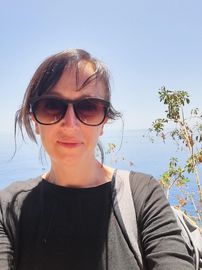
Carla Schieb works as a Scientific Research Coordinator at the Institute of Reproductive Genetics and has a wide range of tasks within the CRU, the junior research scientist centre ReproTrack.MS, and the new CRC initiative.
- My dream job as a child: I wanted to be an actress ✨.
- My favourite place/activity in Münster: Riding my bike along the Dortmund-Ems-Kanal
- Working in science is
- versatile
- dynamic
- inspiring
- What's your go-to method for staying organised amidst the researchers? Outlook and Excel sheets are two of my best friends.
- What's one skill you've developed that you didn't expect to acquire? Adapting fast to (almost) any situation.
- A fun/embarrassing/surprising memory I experienced within the CRU: Learning how testicular volume is actually measured...
- Being part of the CRU is particularly beneficial for me because it provides a rich environment for me to grow professionally.
Fabian Schlag
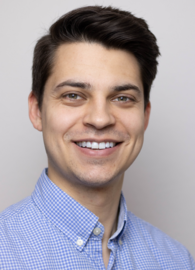
Fabian Schlag is a PhD student working at the Centre of Reproductive Medicine and Andrology (CeRA). He is part of Stefan Schlatt’s team who is PI of CRU project P2 (Modelling the developing gonad – organoid- and iPSC-based approaches).
- My dream job as a child: Doctor
- My favourite place/activity in Münster: Sunset at the Aasee
- Working in science is
- Fulfilling
- Exciting
- Frustrating
- Please describe your field of research in one sentence: human germline development in-vitro from pluripotent stem cells
- My greatest scientific success so far: Oral presentation at the North American Cystic Fibrosis Conference (NACFC)
- My goal(s) as YSC spokesperson: Bringing people closer together and increasing the visibility of early career researchers
- A fun/embarrassing/surprising memory I experienced at a scientific conference: bribing the waiter at a conference dinner to bring more (free) wine
- Being part of the CRU is particularly beneficial for me because of its multidisciplinary team which provides feedback from different perspectives.
Maria Schubert
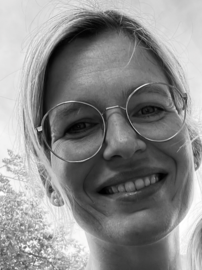
Maria Schubert works as a Clinician Scientist at the Centre of Reproductive Medicine and Andrology. Together with her workgroup Translational Andrology they aim to unravel the heterogenous cohort of unexplained infertile men, on whom she also focuses during her consultation hour.
When not working as Clinician Scientist, she is passionate about her growing family, which is composed of her husband Kersten and currently their three kids: Mara, Flint and Kara. Seeing the world throughout their eyes is so fulfilling and rewarding.
- My dream job as a child: was to become a newsreader at TV. Nowadays it`s not the world news, but rather “Grüfelo” and co. that I read aloud.
- My favourite place/activity in Münster: taking a walk around the Aasee and observe the atmosphere of all the people walking, singing, sitting, and barbequing. It makes me realise that I life in a place where others come to make their holidays.
- Working in science is
- Challenging
- Rewarding
- Accepting that there will never be a final/definite answer to a question. There are always new ones to arise.
- Please describe your field of research in one sentence: to unravel the heterogenous cohort of idiopathic/unexplained infertile men.
- My greatest scientific success so far: Coming from no idea of what GWA studies are a few years ago, to accompanying one within the CRU, and now leading one in a project that was recently funded.
- A fun/embarrassing/surprising memory I experienced at a scientific conference: When an internationally well-known scientist, known for his studies on FSH and male infertility, whom I only knew from reading and citing his manuscripts, came to a session only for one presentation, which I gave on that topic.
- Being part of the CRU is particularly beneficial for me because it was the beginning of my scientific work on male infertility, mentored and accompanied in a friendly and supporting surrounding. Scientifically growing up and getting more independent in my thinking as Clinician Scientist is something that I learned within/through the CRU (times), for which I am very thankful!
Moritz Voges

Moritz Voges is a student research assistant working at the Institute of Reproductive Genetics. As part of the coordination and management team, he is mainly responsible for the website and publication maintenance.
- My dream job as a child: As a child, I always want to become a police officer.
- My favourite place/activity in Münster: My favourite activity is picnicking with friends at the Aasee having a nice time during the summer.
- Working in science is
- exciting
- varied
- inspiring
- What's your go-to method for staying organised amidst the researchers? Sending reminders to the researchers by using outlook calendar entries :D
- What's one skill you've developed that you didn't expect to acquire? At the beginning of my work as a SHK in 2020 I didn´t expect to acquire so many skills in the field of science management as well as public relations activities, e.g. website design and event planning.
- A fun/embarrassing/surprising memory I experienced within the CRU: Writing Christmas postcards (from address research to sending the cards) through the November/December
- Being part of the CRU is particularly beneficial for me because it gives me interesting insights into the field of research as well as challenges myself to improve my skills and to empower me in my future work.


